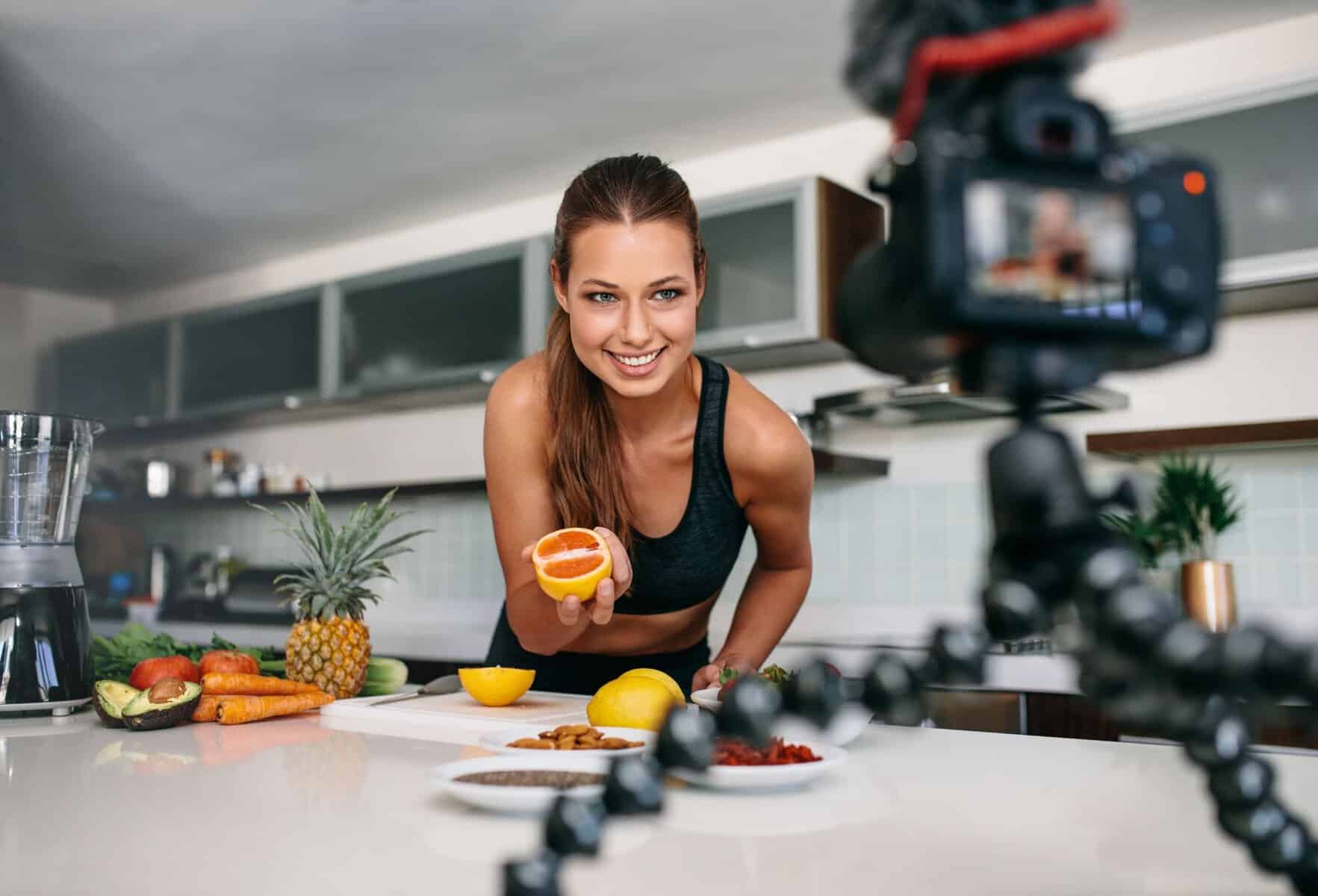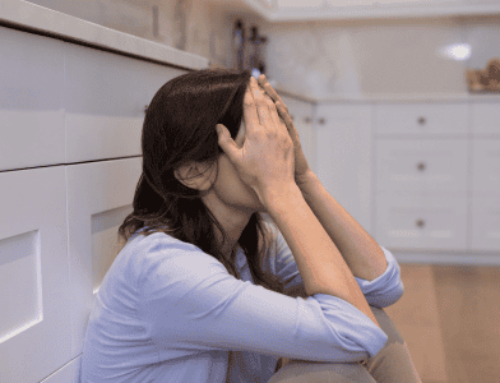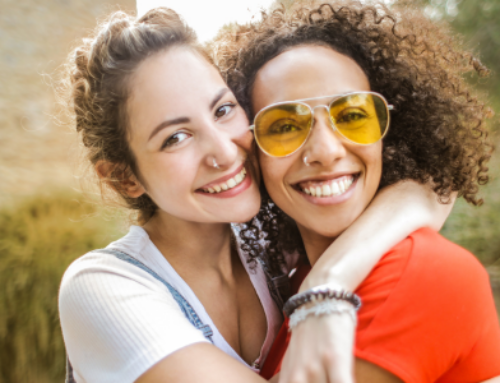The rise of social media influencers and self-comparison
Social media influencers have a lot to answer for when it comes to providing inaccurate and unwelcome dietary advice. Across social media, unqualified influencers are competing to achieve health and well-being guru status. Fitness programs, nutrition products, affiliate programs and marketing; these are all common ways for influencers to share dodgy information.
As a result, we often find ourselves influenced, in one way or another, by these individuals, whether it is at a conscious level or not. With such huge growth in the health and well-being content on social media comes an increase in comparing ourselves to others. Comparison, like this, can often have negative impacts on our body image, eating patterns, and our overall perception of ourselves.
‘What I eat in a day’ posts
On the topic of comparison, a popular trend presented by many fitness and food influencers across social media are “what I eat in a day” posts. It is human nature to be intrigued by what other people are eating on a day-to-day basis, particularly if they have the body type/shape that we desire, however these types of posts can lead to self-comparison.
Although these posts may be published with good intentions, such as sharing meal inspiration or showing others what a balanced diet looks like, we often forget that they are heavily biased snapshots of their ‘typical’ diet. It’s a highlight reel; in which the most appealing and nutritious foods dominate. It seems they ‘conveniently’ don’t show you what a day looks like when they are stressed, busy, lazy or on their periods (if you know, you know).
Constant exposure to unreliable nutrition advice from influencers has been a key driver of the increased rates of Orthorexia and Body Dysmorphia, both of which correspond with increased social media use (1-4). This heavy exposure also lends itself to our current, ‘tech-savvy’ generations overall psychological well-being, and the impacts that social media influencers have over their followers. Who of which, remain confused about nutrition information and more often than not, develop unhealthy relationships with food (1).
Exploring the credibility of social media influencers
I must say, I am impressed when it comes to influencers’ amassed legions of global fans. However, I am often left stumped as to what makes them more credible than the actual experts. Interestingly enough, a UK-based study found that social media influencers with cult-like followings gave incorrect health advice 90% of the time (5).
The majority of nutrition advice and health claims we are faced with daily are anecdotal opinions, meaning that if it worked for ‘X influencer’ it obviously HAS to work for you too. But with this personal advice-based information comes potentially harmful outcomes, such as those that came from uncovering Belle Gibson’s health claim scams (as one example). Scandals such as Gibson’s is concerning, as it shows how strongly social media has changed who we choose to trust, and what information we should be taking with a grain of salt.
How to spot and avoid bad nutritional advice
Our social pages are jam-packed with influencers who use their platforms as a way to give nutritional advice. It can definitely be confusing and difficult to know who is actually worthy of your time. Who are you supposed to believe? I’m not saying that all social media influencers are sprucing incorrect information to their audiences, but I will remind you to interpret this information carefully (especially if their highest qualification they have obtained is a master’s degree in Adobe Photoshop).
Like every science, the evidence to back any nutritional guideline is young and evolving. It is therefore up to you to critically consider health claims from non-experts before you choose whether or not to digest it, pardon the pun.
An important feature to look for is that nutrition recommendations should always be individualised. Aka, just because one thing worked for someone else does not necessarily mean it will work for you too. Secondly, if an influencer is telling you to restrict or avoid whole food groups, you can automatically interpret this as fake news.
No singular food causes weight gain, acne or fatigue and additionally, no single food will boost one’s health beyond belief.
For instance, if someone is raving about how fantastic celery juice is for detoxifying the body, take that as a big red flag and unfollow now. Non-health professionals often speak on topics without the appropriate qualifications (like a bachelors or masters degree). So instead, choose to follow more nutrition professionals such as dietitians or registered nutritionist who are bound by ethics to ensure that you are getting correct advice.
If you are still confused or anxious about certain foods or nutrients, always fact check with appropriate guidelines, resources or dietetic advice.
Making dietitians cool again
With so many different titles and terms used by ‘experts’ and ‘professionals’, it’s hard to know who is authentic and who actually wants to help you.
I know that the role of a ‘dietitian’ may sound like a bit of a dinosaur concept, but I promise we are actually pretty cool health professionals and worthy of your time.
Our nutrition-based messaging will always be consistent and backed up by science. This will hopefully provide you with a sense of relief, as opposed to food anxiety from unclear evidence provided online. Having a dietitian in your corner will only ever be a positive thing, so shut down Instagram now and take the first step towards improving your health today.
If you’re feeling confused about all of the health information out there, come and have a chat with our team to help you on your way!
References
- Turner, P.G., Lefevre, C.E. Instagram use is linked to increased symptoms of orthorexia nervosa. Eat Weight Disord [Internet]. 2017 [cited 2021 Jul 07]; 22,277–284. Available from: https://doi.org/10.1007/s40519-017-0364-2
- 60 Minutes, TV program. Over the Influence: Part One [television broadcast]. Sydney: Nine Network; Oct 2018. Available from: https://www.9now.com.au/60-minutes/2018/clip-cjnsdmaf1002j0gpacg6gz2te
- Cohen, R., Newton-John, T., Slater, A. The relationship between Facebook and Instagram appearance-focused activities and body image concerns in young women. Body Image [Internet] 2017 [cited 25 Jun 2021]; 23(1):183-187. Available from: https://doi.org/10.1016/j.bodyim.2017.10.002
- Fardouly, J., Willburger, B.K., Vartanian, L.R. Instagram use and young women’s body image concerns and self-objectification: Testing mediational pathways. New Media & Society [Internet] 2018 [cited 25 Jun 2021]; 20(4):1380-1395. Available from: https://doi.org/10.1177/1461444817694499
- Forrest, A. Social media influencers are dishing out false nutrition and weight loss advice 90% of the time [Internet]. United Kingdom: The Independent; Apr 2019. Available from: https://www.independent.co.uk/news/health/social-media-weight-loss-diet-twitter-influencers-bloggers-glasgow-university-a8891971.html




